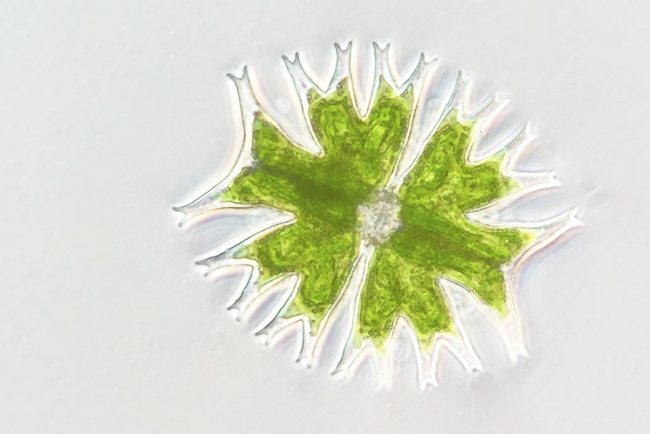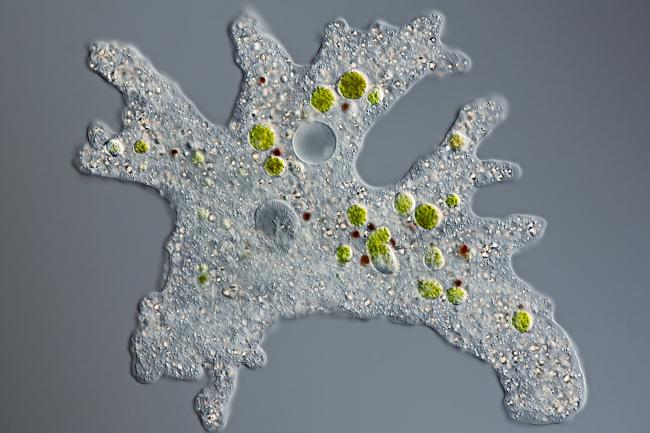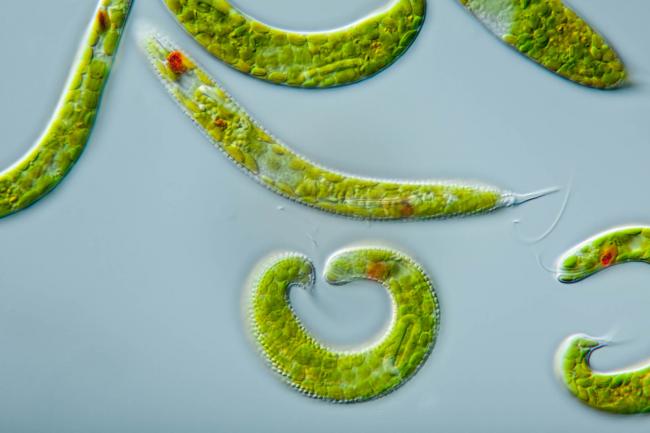The Euglena International Network (EIN), founded in 2020, is a global consortium of hundreds of scientists around the world with the collective goal of supporting euglenoid science through collaborative and integrative omics between academics and industry.
The EIN has today published a position paper in Biology Open, outlining the case for a concerted effort to generate high-quality reference genomes for the nearly 1,000 known species of euglenoids.
Euglenoids are part of the protist group, home to eukaryotic organisms that do not fit into animal, plant, or fungi groups. These diverse single-celled organisms are found in an exceptionally wide range of ecosystems around the world.
Multiple euglenoid species have translational applications, showing great promise in the production of biofuels, nutraceuticals, bioremediation, cancer treatments, and even as robotics design simulators.
Their enormous potential has been largely untapped due to a lack of high-quality reference genomes.
Professor Neil Hall, Chair of the EIN Science Committee and Director of the Earlham Institute, said: “It’s incredibly rare to find an organism so versatile it has potential roles in food production, biofuel generation, robotic engineering, and drug development – and there are many more applications possible. Producing reference genomes is the first step to understanding these remarkable organisms so we can realise their biotechnological potential.”
Euglenoid genomes present a particular sequencing challenge because they are an example of secondary endosymbiosis – housing mitochondria, chloroplasts, and remnants of genetic material from organisms they enveloped to acquire these organelles.
Their enormous potential has been largely untapped due to a lack of high-quality reference genomes.
Dr. ThankGod Echezona Ebenezer, Founding President of EIN and a Bioinformatician at the European Bioinformatics Institute (EMBL-EBI), UK, said: “The Euglena International Network will play a crucial role in helping to assemble specialists on euglenoids to increase our understanding of euglenoids biology and its translational applications. This could be useful to furthering our understanding of the evolution of parasitism, social gaming, developing jet fuels, or supporting human space exploration”.
Euglenoid genomes present a particular sequencing challenge because they are an example of secondary endosymbiosis – housing mitochondria, chloroplasts, and remnants of genetic material from organisms they enveloped to acquire these organelles.
As a result, fewer than 20 species have been explored at any level for translational potential through genomics. The EIN believes the time is right to address this.
Through generating high-quality reference genomes for the known species of euglenoids, the EIN will work to:
- Understand the basic biology of euglenoids
- Understand the evolution of euglenoids
- Maximise euglenoid applications in ecological and environmental management
- Explore, translate, and commercialise euglenoid products
Data collected by the EIN will be openly available to the scientific community through the European Nucleotide Archive (ENA). Once in ENA, annotated genomes can be imported into resources such as Ensembl Protists and presented in a uniform and FAIR way to research communities.
The Euglena International Network is an affiliated network to the Earth BioGenome Project and the International Society of Protistologists.




